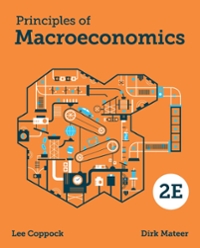Question
The Medicines Company Case What is the extra or added value of a dose of Angiomax to a hospital? Is it reasonable to interpret this
The Medicines Company Case
- What is the extra or added value of a dose of Angiomax to a hospital? Is it reasonable to interpret this as the demand for Angiomax?
- What is the marginal cost of Angiomax?
- What price should the Medicines Company charge for a dose of Angiomax? Why?
- What do you think the adoption profile will look like for Angiomax? Will this be an easy sell or a tough sell? If you were the Medicines Company, how would you promote adoption?
- What do you think of the Medicines Company's business model of "rescuing" abandoned drugs?
Pricing Exercise:
- What is the value created by Angiomax (relative to heparin) for hospitals? Calculate this value added on a per patient basis, that is dollars per patient treated, for
- Very-High Risk Patients (Table C);
- High Risk Patients (Table B); and
- Low Risk Patients (footnote 7)
Remember that the value added by Angiomax is the expected value (or average) of the savings for hospitals in the procedures to treat side effects of angioplasty (page 10 gives a rough estimate of the cost per side effect). The case gives an estimate of the size of the market, so you can calculate the total savings as well. Note that the case also tells you how many patients were in the trial, but that is much smaller than the total annual market.
- On average how many doses of Angiomax are required per angioplasty patient? What is the value added of Angiomax per dose for each patient group?
- What is the marginal cost per patient (see page 9)? Assuming that every hospital uses Angiomax for every patient for which the value
- created (or cost savings) exceeds the price, what price (per dose) maximizes the profits from sales of Angiomax?
Hint: If the price of Angiomax is set at the average savings per patient across all three
groups, hospitals would not buy Angiomax for the low risk patients, since by
construction the price exceeds the value created for these patients. To answer this
question, you need to ask what price is low enough that it would be purchased for all
very-high risk patients, what price is low enough to attract very-high risk and high risk
patients, and what price is low enough to attract all three segments. That is, construct the
demand curve. Then ask which of those three prices is the most profitable.
Step by Step Solution
There are 3 Steps involved in it
Step: 1

Get Instant Access to Expert-Tailored Solutions
See step-by-step solutions with expert insights and AI powered tools for academic success
Step: 2

Step: 3

Ace Your Homework with AI
Get the answers you need in no time with our AI-driven, step-by-step assistance
Get Started


